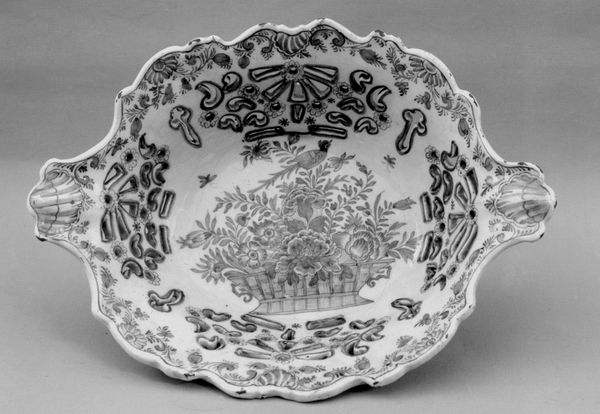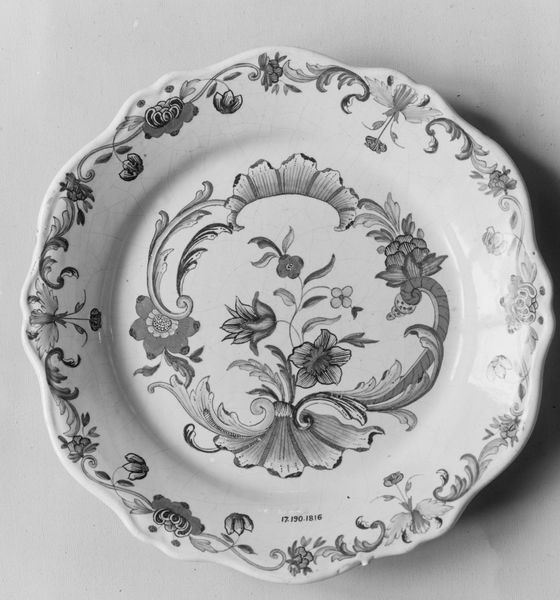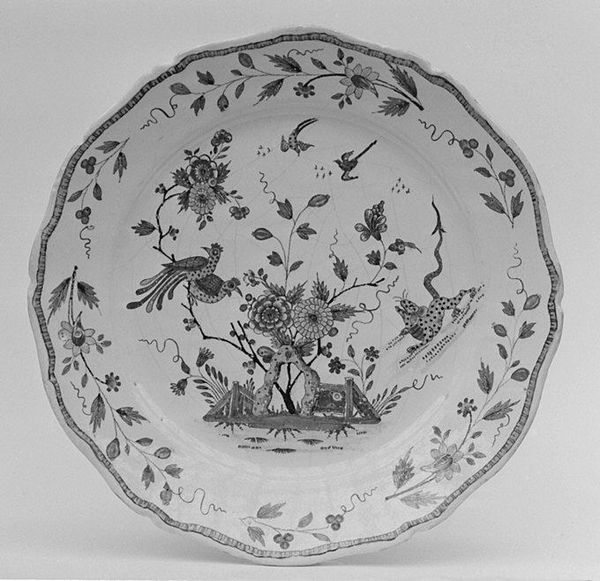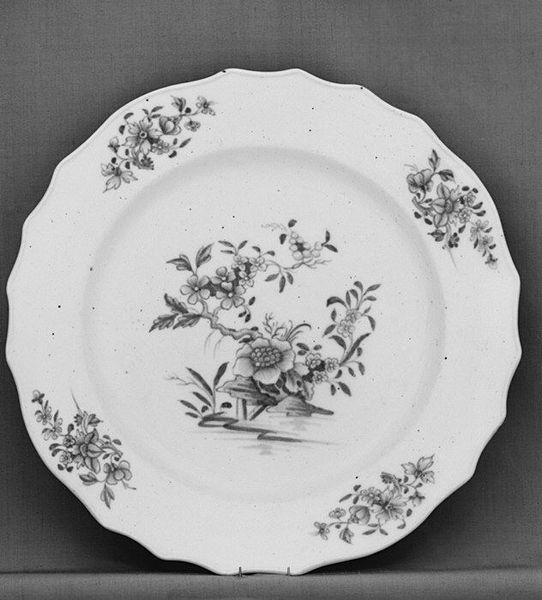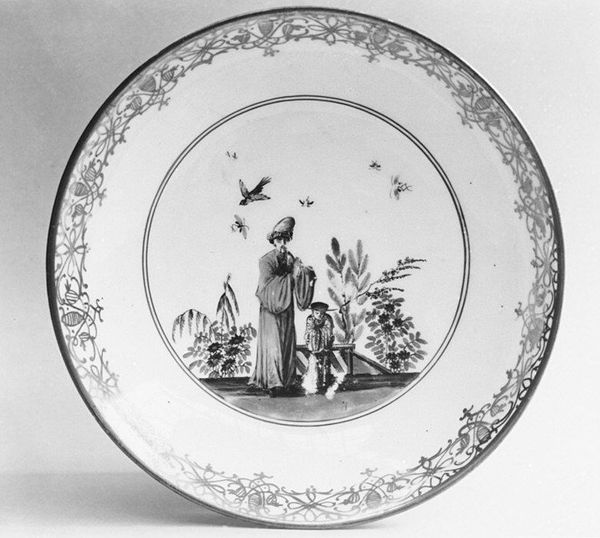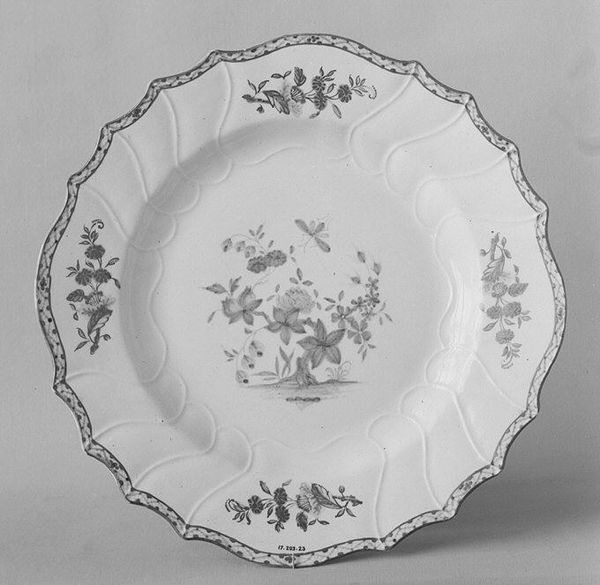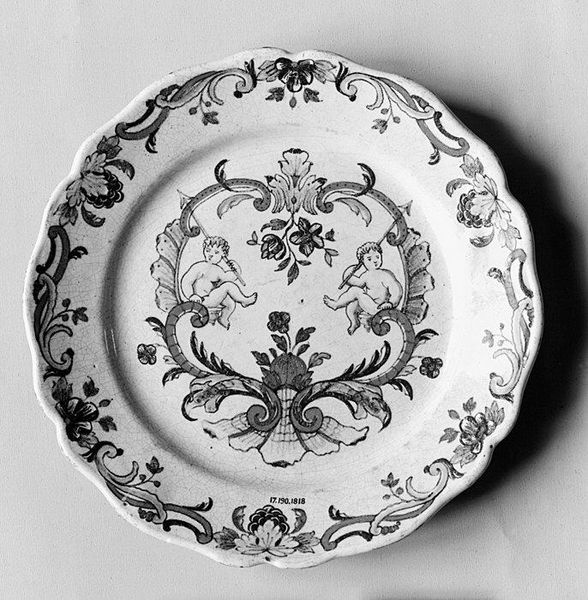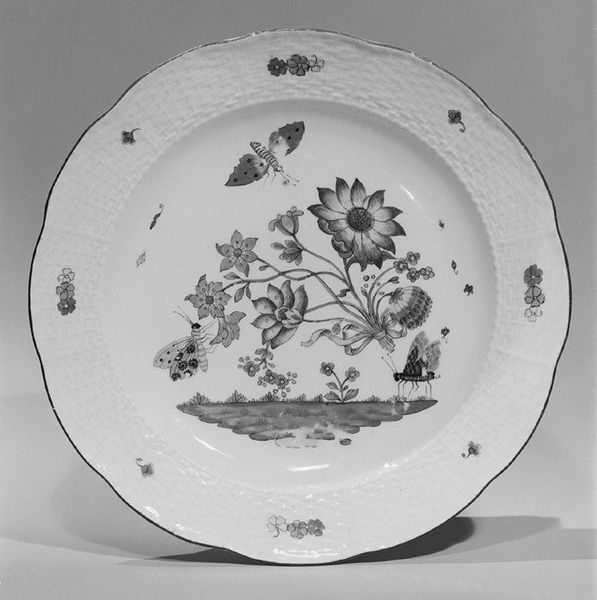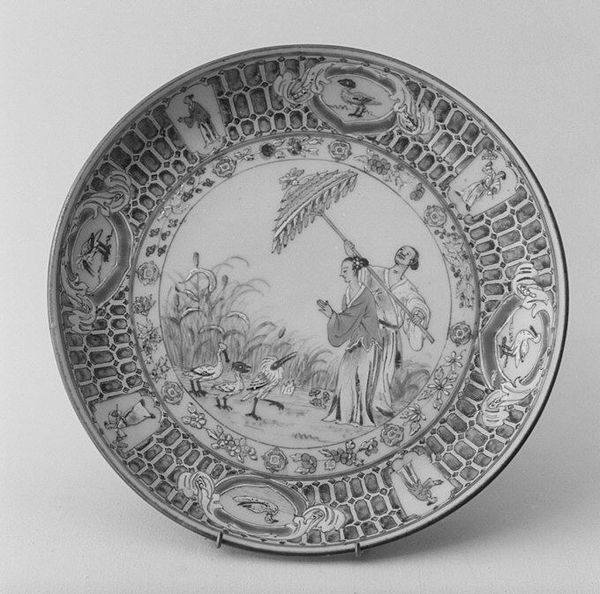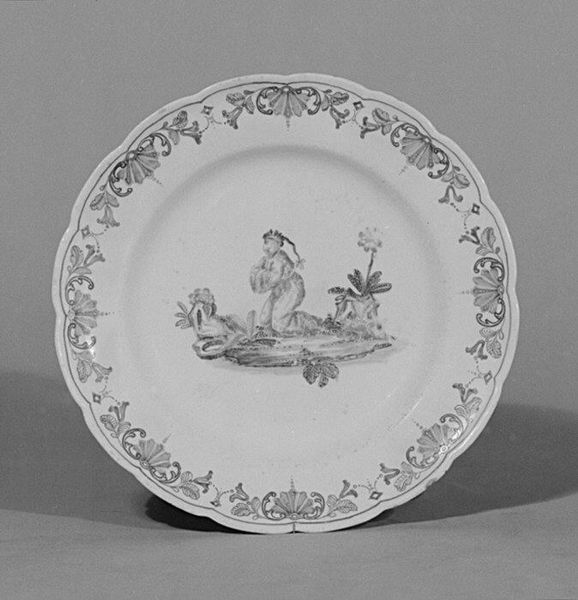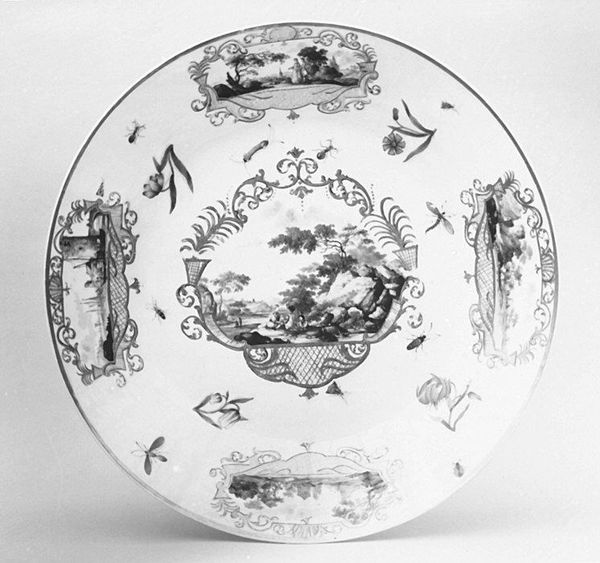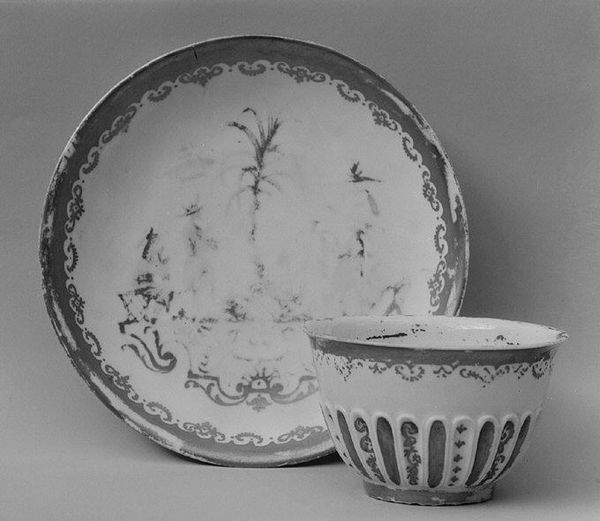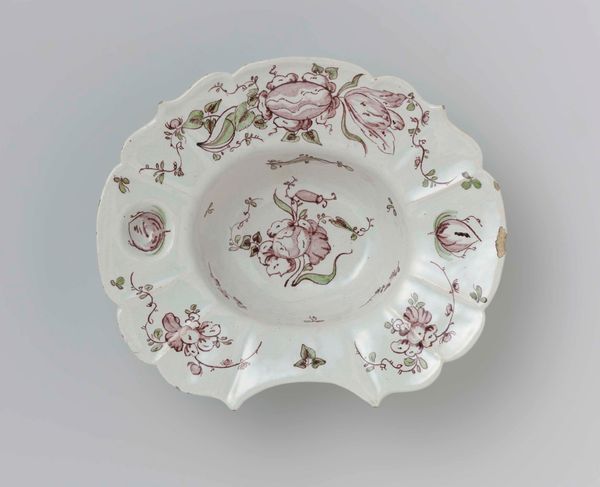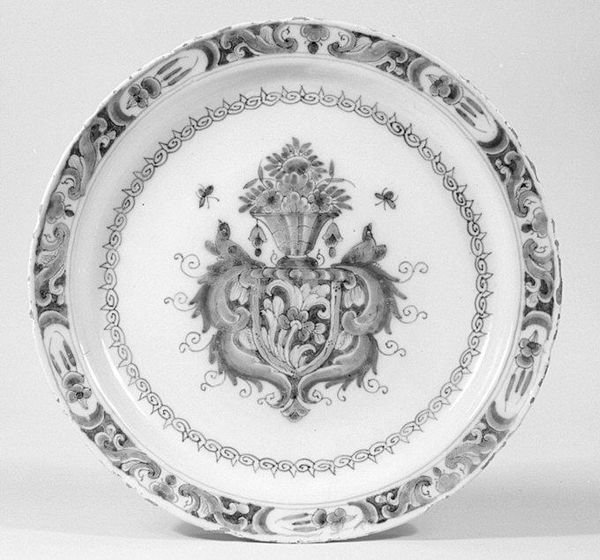
ceramic, sculpture
#
ceramic
#
sculpture
#
decorative-art
Dimensions: Diameter: 13 1/2 in. (34.3 cm)
Copyright: Public Domain
This dish was made in France, sometime in the early to mid-1700s, by Jean-Baptiste Guillibaud, using tin-glazed earthenware. Earthenware is a relatively low-fired ceramic, but the tin glaze gives it an opaque, bright surface, perfect for decoration. The floral motif in the center is painted by hand, with great precision and attention to detail. Look closely and you’ll see an elaborate, stylized border design. This was a labor-intensive process, requiring both artistic skill and technical mastery of the medium. The finished dish would have been an expensive, luxury item. Yet, objects such as these were also central to early capitalism. As they became fashionable, there was intense pressure to produce them more quickly and cheaply, dividing the labor amongst workshops. As you consider this plate, think about the many hands that contributed to its making, and the social context in which it was created. It’s a reminder that even the most beautiful objects can be tied to wider issues of labor, politics, and consumption.
Comments
No comments
Be the first to comment and join the conversation on the ultimate creative platform.
